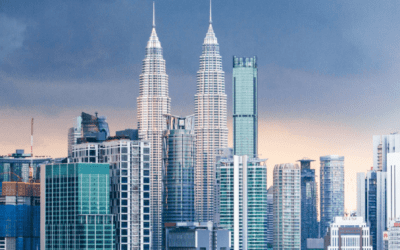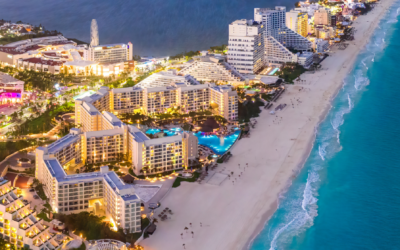Dateline: Tbilisi, Georgia
If you’re worried about terrorism in Europe and around the world, you are not the only one. Most people wake up on a regular basis to a new report of a terrorist attack or some other form of terrorism.
I don’t want to downplay the situation — and even think that maybe something should be done — but I don’t completely buy into the fear that so many have expressed in the wake of the Paris and Brussels attacks.
I was flying from one part of the EU to another on the day of the bombing at the Brussels airport. Everyone was freaking out and wondering where the next target would be. While precaution is always important, the emotional response is not essential.
In fact, part of terrorism’s aim is to elicit an emotional response: terror.
So let’s put emotions aside and look at the facts. I recently saw a graphic that illustrated the number of terrorist attacks in Western Europe since 1970. Based on the news culture of the day, you’d expect the number of attacks and death toll to be larger now than they have ever been.
Yet, the numbers show the opposite.
From 1972 to 1988, the death toll from terrorist attacks in Western Europe ranged from lows just under 200 to highs over 400, with different attacks in multiple countries every year.
From 1994 to the present, the number of attacks and casualties drops off significantly, with the attack in Madrid in 2004 and the recent Paris attack being the only two terrorist attacks to have taken over 100 lives in Western Europe.
While any loss of life anywhere in the world is tragic, the question we have to ask ourselves is why there is so much fear today versus in the 70s and 80s when the death toll was substantially higher?
Why now?
The symbolism of terrorism
We put a lot of emphasis on symbols. It’s who we are, I guess. And terrorism has become a more and more powerful symbol to many people over the years.
The War on Terror has definitely had a hand in shaping the symbolism and general awareness of terrorism, but it is not entirely to blame.
Social media — among other factors increasing global connectivity — has made it so that news travels so much faster, meaning that increasing numbers of people are more and more informed than in the past.
We see the stories repetitively — on social media, in the newspaper, on the television, on social media again, etc. — and we also see so much more action and response to these events. As a result, even though the numbers aren’t as high, our knowledge of the numbers that exist is higher, increasing the general “terror” of the masses.
Compare that to an event like the Lockerbie explosion in December 1988. You may have heard about it once on the news, and maybe once more in the newspaper, and then that was it. Now, however, terrorist attacks or plots or attempts or even false alarms and government raids are constantly being put out there.
And by seeing it everywhere, we begin to believe that it is everywhere.
The symbolism of terrorism has become so powerful to the point that it can entirely change the decisions individuals like you make about your future.
Since the attacks in Belgium and France, I have had many people ask me whether or not the Belgium residency is still a good idea. And many people will look at the attack in Belgium and think “Well, I can’t move there anymore! It’s all over.”
I’m not the perfect oracle, and there’s always the chance that more attacks can occur, but I also don’t think that we should use these events as an excuse to stay in the United States or away from Europe.
The truth is, numerous cities across various countries and cultures have had their problems with terrorism. New York had problems. Washington had problems. Tokyo in the 1990s had problems. I’m not saying that you won’t ever be able to avoid it, but I am saying that you shouldn’t let terrorism determine your life choices.
If you want to live your life that way, that is fine. I in no way want to encourage you to go somewhere that you feel is unsafe. Going offshore, after all, is about increasing your personal freedom. However, there is a difference between precaution and fear-based decision-making — a difference between a logical or emotional response.
If you are open to considering the logical response, let’s add to the statistics on terrorist attacks in Western Europe and look at some of the other concerns and arguments I’ve heard mentioned against moving to Europe in the light of recent events.
Concern #1: Europe is soft on terrorism
While there is no doubt that Americans sympathize with Europeans in their struggle against terrorism, there is a certain level of cross-the-pond banter in which Americans make the silent argument that Europe’s current predicament is a consequence of their open borders.
“Twenty years of of open borders and wide-spread acceptance of immigrants? . . . That’s what you get!”
If you haven’t thought it, you know someone who has. There’s a mentality that Europe’s approach to borders and immigration is the reason terrorists have been able to attack, but the truth is that there is no clear-cut answer.
Going back to the numbers, there were more terrorist attacks before the Schengen Agreement. So don’t jump to conclusions too quickly.
Saying Europe is soft on terrorism is just a way to stereotype and throw labels around. And it can affect your view of things as they really are. There’s always a stereotype of another place. It’s easy to do.
What if we could have stopped 9/11? Are people saying that America is soft on terrorism? You have to look at things for what they are, not for what is convenient.
If you’re an American, you’re probably thinking “Well, the US doesn’t feel very safe, but where do we go now?” There are attacks in Iraq, in France, in Turkey, in Belgium, in Kuala Lumpur, and yet life goes on in all these places.
More importantly, there comes a point in which you just have to live your life.
If you want to cling to certain stereotypes, sure, Europe in some regards will be soft on immigration. But you can also see that as a good thing. Europeans have been saying that they’re not going to take the bait. They’re not going to react with anger and racism and start tossing out every Muslim.
To me, the humanity is refreshing.
Concern #2: Changes to immigration policy
The other concern I’ve heard from many of you is that immigration policy will change now that terrorism is becoming more prevalent in these Western European countries.
As unnerving as these events can be, they will not change the entire immigration policy of Belgium or anywhere else in Europe.
Will they change to some extent? It’s very likely. Will those changes jeopardize your chances of obtaining citizenship in your European country of choice? Probably not.
Even with the talk of closing down immigration, that doesn’t mean shutting down the whole system.
For instance, Belgium’s not going to stop people who want to contribute to the economy from doing so. Whereas presidential nominees in the United States threaten to turn away refugees, shut down immigration and build vast walls along the border, Europe will take a more measured and logical response.
That’s part of why Europe still makes sense because there’s still a principle of following the rules. Whether you like the rules or not, these countries stick to the rules and don’t turn to arbitrary measures based on emotional reactions.
Europe may indeed get rid of some types of immigration. Perhaps they will rid themselves of the type of immigration that exists in the US and just stop letting people immigrate who don’t have anything to contribute.
If you are reading this blog, however, chances are very high that you do have something significant to contribute. So these ideas that you can’t move anywhere and that immigration laws will change overnight are ideas that you shouldn’t be concerned about.
Do immigration programs change? Yes. The Czechs changed their immigration policy five years ago. It used to be the easiest country in the world to immigrate to. However, long before terrorism in Europe became a buzzword, they changed their policy due in large part to a surge of nationalism.
You never know what the things will be in a particular country that will instigate change, but you can guarantee that it won’t happen overnight.
So continue with your plans, don’t jump to conclusions, and make a logical response. If you handle this stuff emotionally, you’re going to be doomed to waste a lot of time and a lot of money.









